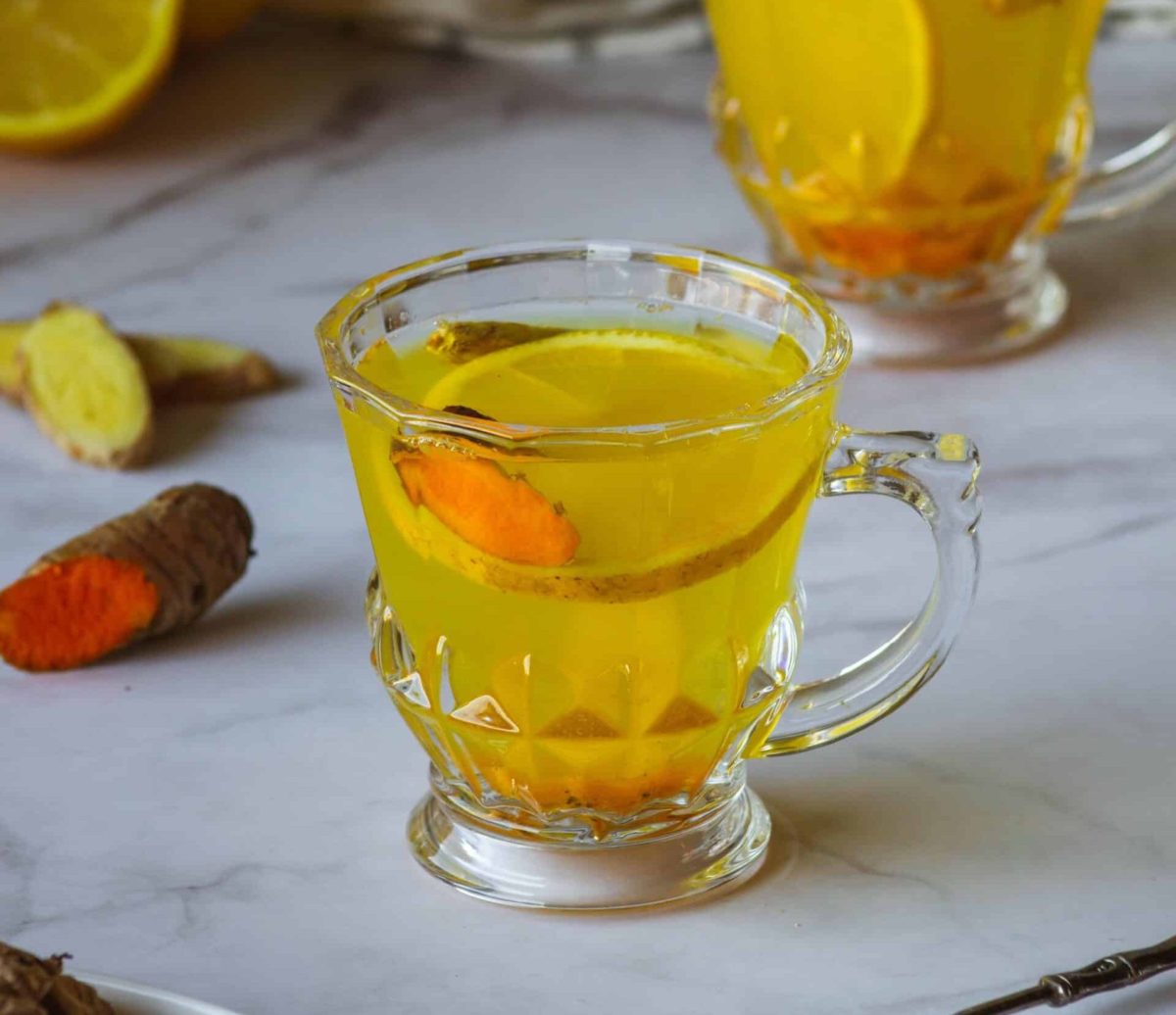Struggling with respiratory discomfort? Discover how tea can be a valuable ally in supporting your lung health. Packed with antioxidants and beneficial compounds, tea may help soothe inflammation, potentially protect lung tissue, and promote easier breathing. Let’s explore the science behind these remarkable beverages and how they might contribute to respiratory wellness.
Breathe Easy: Exploring Teas for Respiratory Wellness
Breathing freely is often taken for granted until respiratory issues arise. Fortunately, nature offers a comforting solution in the form of tea. Beyond their delightful flavors, certain teas may play a supportive role in maintaining healthy lungs and soothing irritated airways. Let’s delve into the world of teas that could help you breathe a little easier.
Green Tea: A Potential Boost for Lung Power
Green tea, renowned for its antioxidant properties, may be a valuable ally for your lungs. It contains beneficial compounds like theophylline and theobromine, which have bronchodilatory effects, potentially relaxing and opening airways. Some studies suggest that regular green tea consumption might even contribute to improved respiratory muscle strength and increased lung capacity. This could potentially allow your lungs to take in more air with each breath.
Herbal Teas: Nature’s Soothing Balm
Herbal teas, often caffeine-free and brimming with natural goodness, offer diverse options for respiratory support. Many possess anti-inflammatory properties, potentially calming irritated airways and easing breathing discomfort.
Consider herbs like turmeric, cinnamon, and ginger. Brewed into a warm tea, these potent spices may offer soothing relief. Turmeric, known for its vibrant color and curcumin content, has shown promise in reducing inflammation throughout the body, including the lungs. Cinnamon’s warm aroma may also help ease respiratory discomfort. Ginger, a common remedy for nausea, also boasts anti-inflammatory properties that could benefit the respiratory system.
Addressing Specific Respiratory Concerns
Different teas may offer specific benefits for various respiratory issues. For asthma symptoms, ginger, green tea, and licorice root tea might offer some relief by potentially relaxing the airways and reducing inflammation. For general lung inflammation, turmeric, ginger, and chamomile teas could be beneficial due to their potential anti-inflammatory properties. If congestion is your primary concern, eucalyptus and peppermint tea’s menthol content may create a cooling sensation and help clear airways. The gentle fragrance of rosé water, though not a tea, is also believed to have calming effects, while spearmint leaves offer a source of antioxidants and vitamins.
The Science of Tea and Lung Health
While research on the direct link between tea and lung health is ongoing, individual tea components show promising results. Green tea’s antioxidants are believed to potentially protect lung tissue from damage caused by environmental pollutants. Theophylline and theobromine are known to relax airways. Scientists continue to explore the benefits of various teas, and we can expect further insights in the future.
Incorporating Tea into Your Routine
Adding tea to your daily routine is a simple way to potentially support your lung health. Choose high-quality teas from reputable sources. Brew your tea according to instructions, as different teas require varying brewing times and temperatures. Combining teas, such as green tea with ginger or turmeric, could offer synergistic effects. Remember, tea is most effective within a holistic approach that includes hydration, a balanced diet, and regular exercise. Consult a healthcare professional for personalized guidance on respiratory concerns.
Choosing the Right Tea for Lung Support
Selecting the right tea can be a soothing way to support your lungs. Let’s explore some potentially beneficial options:
- Mullein: Historically used as a lung tonic, mullein may help calm irritation and loosen mucus.
- Green Tea: Rich in antioxidants, green tea may contribute to improved lung function.
- Echinacea: Often brewed as a tea, echinacea is known for its immune-boosting properties.
- “Breathe Easy” Blends: Pre-made blends often combine herbs like licorice root, peppermint, and ginger for comprehensive respiratory support.
- Lavender Tea: With calming and anti-inflammatory properties, lavender tea may ease respiratory discomfort.
| Tea Type | Potential Benefits | Considerations |
|---|---|---|
| Mullein | Soothes airways, loosens mucus | Some people may be allergic. |
| Green Tea | Antioxidant protection, may improve function | Caffeine content may be a concern for some. |
| Echinacea | Immune system support | Not technically a tea, but often brewed as one. |
| Breathe Easy Blends | Comprehensive respiratory support | Ingredients vary; check for potential allergies. |
| Lavender | Calming, anti-inflammatory | Effects may be mild. |
While these teas may offer supportive benefits, they aren’t a replacement for medical treatment. The concept of “lung cleansing” teas requires further scientific investigation. If you have respiratory concerns, consult a healthcare professional. Ongoing research continues to explore the potential of various teas and herbs for lung health. For now, incorporating tea into your routine can be a pleasant way to potentially support your overall well-being, including the health of your lungs.
Does Mullein Tea Really Help Lungs? Separating Fact from Fiction
Mullein tea has a long history of use as a potential respiratory aid, believed to loosen mucus and soothe irritated airways. However, scientific evidence supporting these claims is still limited. More research is needed to fully understand its effectiveness for specific lung problems. “Helping lungs” encompasses various aspects, from easing coughs to managing bronchitis. While mullein tea might offer some symptomatic relief, it’s not a cure-all. Consulting your doctor before trying new remedies is crucial, especially if you have pre-existing conditions or take other medications.
Mullein’s potential anti-inflammatory properties suggest it could improve breathing by calming inflammation in the respiratory system. Further research is needed to confirm this. Current research offers a partial understanding of mullein’s potential benefits for lung health, especially in relieving coughs and potentially easing bronchitis discomfort. However, more studies are needed to fully understand its benefits, risks, and interactions.
Some experts believe mullein’s traditional use and emerging research suggest potential benefits, while others remain cautiously optimistic. There is ongoing debate about the significance of its benefits. This discussion will ultimately help us understand mullein tea’s role in respiratory health. For now, consider it a potential addition to a broader approach to lung health, not a standalone treatment for serious conditions.
| Potential Benefit | Current Understanding |
|---|---|
| Soothes irritated airways | Likely, based on traditional use and some preliminary research. |
| Acts as an expectorant | Probably, based on traditional use and anecdotal evidence. |
| Relieves coughs and bronchitis symptoms | Possibly, although more research is needed to confirm this. |
| Possesses anti-inflammatory properties | Yes, but the impact on lung health specifically requires further study. |
| Cures lung diseases | No, consult a healthcare professional for diagnosis and treatment. |
Remember, knowledge is constantly evolving. Stay informed about the latest developments in health and wellness.
Nourishing Your Lungs: The Best Drinks for Respiratory Health
Choosing the right drinks can significantly support your lung health. Beyond hydration, certain beverages offer additional benefits. Let’s explore some top contenders:
Warm Herbal Infusions:
- Ginger Tea: Ginger’s anti-inflammatory properties may help calm irritated airways, especially during colds.
- Green Tea: Antioxidants in green tea can help protect lungs from pollutants and toxins.
- Licorice Tea: Licorice tea may soothe breathing difficulties and relax airways.
Teas with a Breathing Boost:
- Black Tea: Like green tea, black tea contains antioxidants and theophylline, which may open airways.
- Eucalyptus Tea: Eucalyptus tea’s decongestant properties may help clear nasal passages.
Herbal Allies for Mucus and Irritation:
- Fennel Tea: Fennel tea may relax airways and help loosen mucus.
- Mullein Leaf Tea: Believed to clear mucus and soothe airways, although more research is required.
- Nettle Leaf Tea: Nettle leaf tea’s anti-inflammatory benefits may support overall lung health and ease discomfort.
Teas for Freshness and Protection:
- Thyme Tea: Thyme tea’s antiseptic properties may help protect against respiratory infections.
- Peppermint Tea: Peppermint tea may open airways, relieve congestion, and provide a refreshing sensation.
Beyond Tea:
- Milk Thistle: Some studies suggest milk thistle might offer benefits for lung health, particularly addressing inflammation or damage (cancer, tuberculosis, infections). This supports treatment, injury prevention, and inflammation control. Statement from Livia Dickson Chen, PhD in Nutrition with 11 years of experience.
- Fruit-Infused Water: Fruits like pineapple and banana, high in potassium, fiber, and antioxidants, can support lung health. (American Lung Association recommends 20-30 grams of fiber daily for lung health related to bowel movement strength). Combining fruit infused water with protein sources like eggs can support the formation of immune cells.
While these drinks can be helpful, they are not substitutes for medical advice. Consult a healthcare professional for any respiratory concerns. These beverages are best used as part of a holistic approach to wellness, combined with regular exercise and a balanced diet. Ongoing research continues to illuminate the relationship between diet and lung health.
- Green Bento Box Reinvent Your Lunchtime Meal Prep - December 28, 2025
- Mini Bento Boxes For Packing Kids Snacks And Small Meals - December 27, 2025
- Small Bento Box Makes Packing Lunch Easy and Fun Again - December 26, 2025










